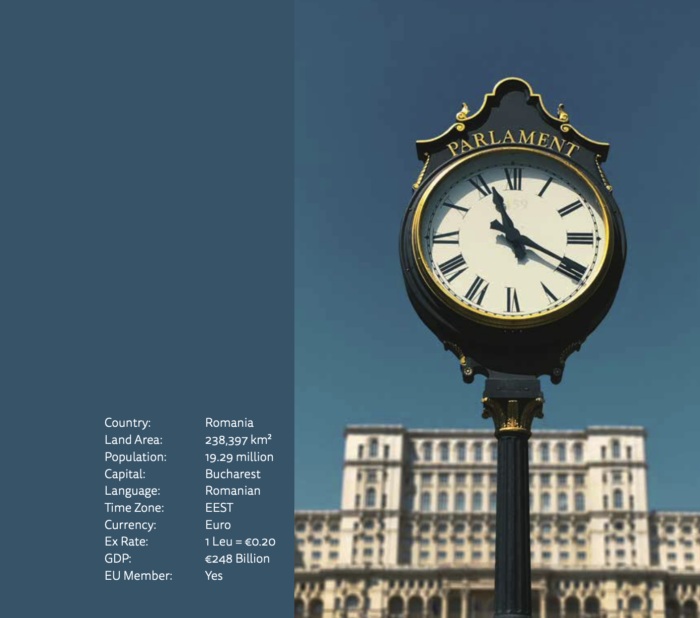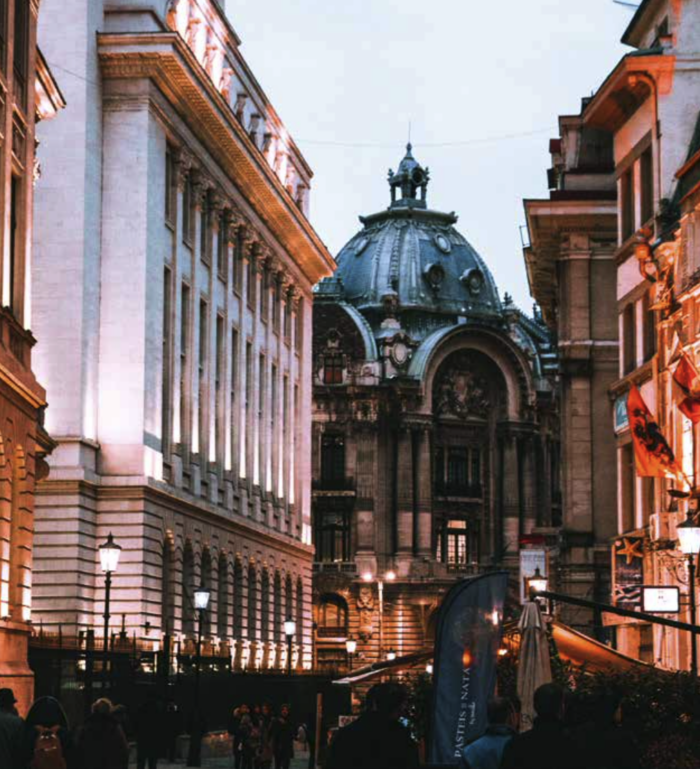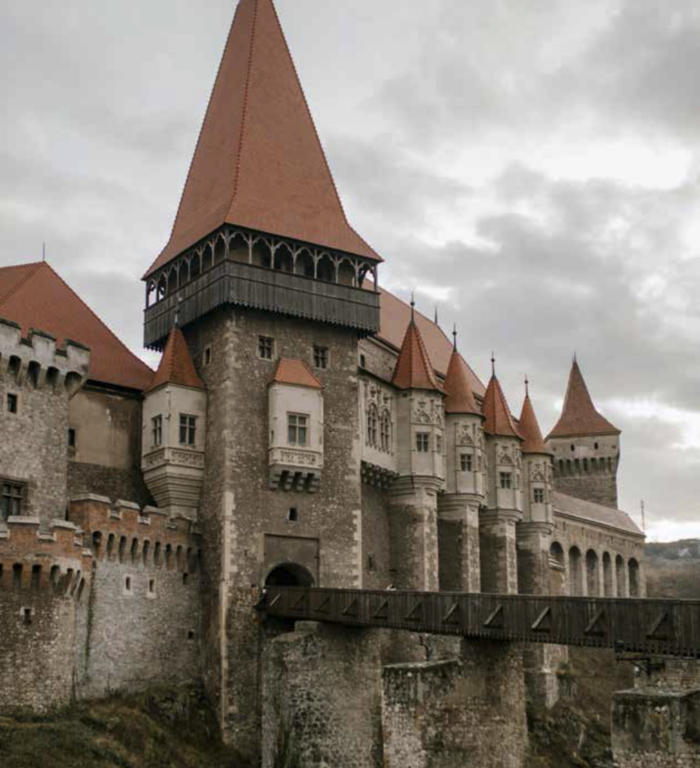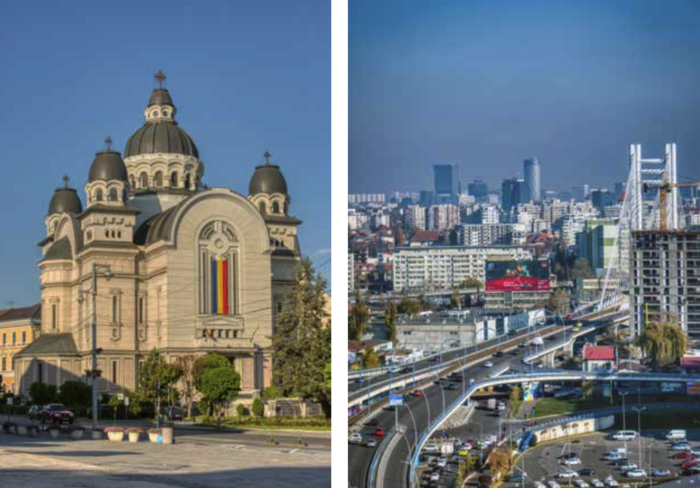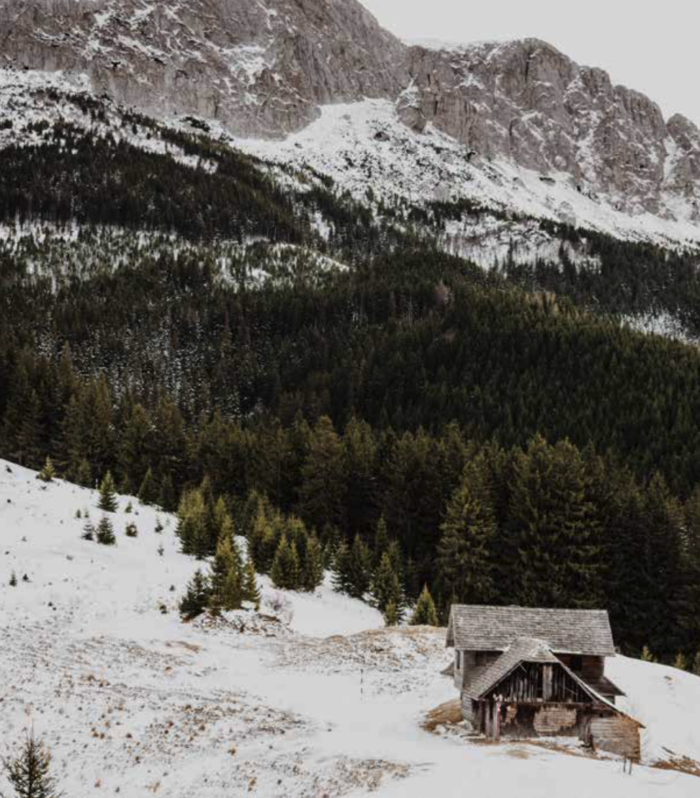The Romans occupied Romania for over 150 years before withdrawing due to being under constant attacks from the barbarians. That was followed by a long period of immigration with the Huns, Avars and Slavs all settling in the area.
Wallachia became the first Romanian principality in the 14th century and later in the same century, Moldavia was formed. Then, during the 15th century, a new threat came from the Turks. Both Wallachia and Moldavia fought the Turks and the notorious Vlad the Impaler. Turkey continued to dominate Wallachia and Moldavia until the mid-19th century, when its power started to weaken. Finally, in 1877 Romania declared its independence from Turkey.
After World War 2, Russian troops were stationed in Romania but withdrew in 1958 and Nicolae Ceausescu became ruler in 1965. The Communist regime collapsed in 1989 and Romania then faced a difficult transition from Communism to democracy and a free market economy.
Romania suffered badly from the recession in 2009 but began to recover in 2011 and the economy is growing steadily. Romania is a member of NATO (2004) and joined the EU in 2007 but retained its original currency, the Leu.
Principal Industries in Romania
The main industries in Romania are comprised of sectors such as textiles, oil refining, automotive goods and heavy machinery. It is also interesting to note that industry and construction accounts for around 32% of GDP.
Other Important Industries
More recently, Romania has become involved in developing dynamic telecommunications, aerospace and defence systems. Its secondary industries of pharmaceuticals and household electronics are also doing well and growing.
Doing Business in Romania
Romania was previously ignored by companies looking to scale into Europe, but it is now beginning to catch the eye of investors and for some very compelling reasons. Just one of those reasons is the growing start-up culture and ecosystem which is beginning to boom there, particularly in the larger cities like Bucharest and Cluj-Napoca. Not that you need to be in a big city to do business in Romania though. In fact, starting a company in one of the smaller Romanian cities could be a good idea for those seeking to live in a low-density region while still benefiting from the same advantages that are available in the metropolises, such as high-speed internet connectivity and a well- developed services sector – even in the most remote parts of the country.
Apart from a great business environment for small and medium-sized enterprises in Romania, companies and investors also have access to an affordable, multilingual and well-educated workforce in most cities.
For those interested in starting a company in Romania, it’s worth looking at government programs that aim to help foreign investors get started. This is where it may be the best idea to get the help of someone local, as they can point you towards your best options and handle things like paperwork and registration.
The View from the Ground
When describing a country and its culture, you can write down all the facts and figures you like but if you want the full story, you need to get the perspective of someone with a lived experience of being there. That’s why we’ve asked Zandra to give us her take on what it’s like to live and work in Romania.
The biggest difference for me is the dress code. In Romania, there’s so much importance put on the way that you dress and look, especially in a business environment. In fact, it is so ingrained in the minds of Romanian workers that even my dad got involved, telling me that I’d have to learn how to wear high heels because you always had to look your best in formal wear if you were going to attend any kind of meeting. So, you can imagine what a breath of fresh air it was for me to come here to see that what you’re wearing is literally the least important thing in the business interaction. Of course, I think it’s important how you present yourself. It’s not true to say that I would go to a meeting in a hoodie or something like that but at the same time, there’s way less importance placed upon how you are dressed here. For me, that was amazing to see and to experience but best of all, I was able to tell my dad that this is not how the world works, so I don’t need to learn to walk in high heels. I still can’t.
While I was at university, I worked in a real estate agency, and I was basically helping them with translating certain flyers because that was my background. Punctuality is definitely a big deal, but I think that fits with other cultures. I mean, in Western Europe punctuality is also very much taken into consideration but we do have what’s called, “the academic quarter,” which means you can be a maximum of 15 minutes late and nobody jumps to any conclusions.
It’s often said that business is about who you know rather than what you know, and in Romania, I think we take that to the extreme, even to the point of nepotism. That is the negative part of it of course, because I think we all see it as being a bit corrupt. But these are the introductions you need when you’re trying to enter a new company and networking is not enough. That’s because we try to establish closer connections. A lot of trust can be built by having a personal relationship rather than a purely business orientated connection.
I think another important point is the fact that we have a very hierarchy driven business culture and not just in business but in general, the whole society is very hierarchy driven. People who are older, or in higher roles always have the first word in business situations and it’s very rare that you would dare to disagree with your manager. That’s another point of difference with here. Here, different opinions are appreciated but in Romania, that would be seen as insubordination.
The decision-maker is always the person at the top, and usually that is the person with the most experience and most likely, they will also be senior in age. I mean, senior roles are occupied by older people in the team, so there are not as many chances that are offered for those of a younger age.
Culturally, you should always remain formal. Even if I am in a business situation with someone who is the same age as me or even younger, we will address each other with the polite form of “you.” Even outside of business, you’d still use the polite form of you. I mean like even in a taxi. Of course, once a relationship is established, you can use the normal form of you but it’s best to be more formal at the start.
Another way of showing respect in Romania is gift giving. It’s not only accepted but actually quite common. It’s not about the material value of the gift though, it’s more about the consideration and respect you are showing to your client and so on.
After the revolution, people really tried to put themselves as far away as possible from anything Russian related. So, if you had to choose sides, Romania is definitely in the American camp and people don’t want to hear any more about the subject of conflict. Sometimes, it depends of course on each person, there are people who believe that during the communist era you had a certain structure and stability that the current democracy can’t sustain. So, I’m sure some people long for the old days but otherwise, nobody’s going in that direction. Sadly, one remnant of the communist era is corruption. It is so ingrained in the higher institutions and even more so in the government, and that can bring us into all kinds of unpleasant situations.
The Romanians tend not to be too direct in communication. In fact, they are certainly more subtle than direct. I think this comes from the fear of offending somebody. Directness is seen as rash, and you should have thought a little bit more about your answer before speaking. In the Netherlands on the other hand, it’s OK to react spontaneously and then optimise or adapt a reaction afterwards. This subtlety doesn’t really cause any problems in business because of the way we cultivate relationships, so that our customers are more like friends who you can be more open with.
In terms of our relationship with our neighbours, I would say that we really like Bulgaria and then with Hungry we have a past. I believe it could be a little bit harder to actually do business there. I mean, if you have a strongly patriotic Romanian and a strongly patriotic Hungarian, the relationship is going to be fiery at best.
We don’t have much to do with Serbia, but we do tend to think of Moldova like a little sister. In fact, a lot of Romanians still believe that Moldova should be part of Romania as it was before their independence. The subject still stirs up a lot of emotion and it comes up quite often in conversation. Moldova is moving closer to Romania now in terms of being on the American side after their recent political issues with Russia and the gas pipeline. Culturally though, the Moldovans don’t really identify with us as they are more Slavic while the Romanians are more Latin. Also, from a linguistic point of view, in Eastern Europe you have Romania, Bulgaria, Hungary, the Czech Republic and Slovakia. All of the others are Slavic and it’s only Hungarian and Romanian that remain unique as they are the only two languages that are not part of the same family.
There is also a Latin flair to the Romanians in that we are more open, friendly and welcoming than some of our neighbours. And, if somebody is visiting from outside Romania, they will be treated extremely well as we like to share more of ourselves because we feel a little misunderstood.
The Romanians consider themselves to be quite funny but it’s a specific type of sense of humour. For example, if there is any irony in a situation, even in business, you can rely on a Romanian to point it out for amusement’s sake. That makes us laugh. We also like sarcasm and making sarcastic observations. Perhaps it’s like a defence mechanism where we can turn any bad situation into something funny. Not a bad skill to have.
Business Etiquette
In Romanian business etiquette, punctuality is of great importance and when you arrive, offering your host a small gift is common practice and considered polite. The value of the gift is largely irrelevant (up to 100 Lei) but it signifies international cooperation. The dress code is quite formal and even in sectors that you may consider to be more relaxed, you’ll still be expected to be in business casual.
The Romanians take business very seriously. They are professionals and many will be holding MBA degrees from prestigious universities abroad. They also like to study the particulars of any potential partners, so expect this, even before a first meeting can be arranged. Once accepted, you will be treated with respect, and you will be expected to act in the same manner.

